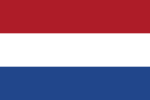Pytheas of Massalia (/ˈpɪθiəs/; Ancient Greek: Πυθέας ὁ Μασσαλιώτης Pythéas ho Massaliōtēs; Latin: Pytheas Massiliensis; born c. 350 BC, fl. c. 320–306...
75 KB (9,891 words) - 18:15, 28 May 2024
the letter on the side of the crater midpoint that is closest to Pytheas. "Pytheas (crater)". Gazetteer of Planetary Nomenclature. USGS Astrogeology...
8 KB (461 words) - 19:50, 24 May 2024
Pytheas (Ancient Greek: Πυθέας) of Athens was an orator who wrote speeches and other works. Pytheas opposed fellow orators Demosthenes and Demades. In...
2 KB (188 words) - 02:40, 12 July 2023
notes that Pytheas says it "is a six days' sail north of Britain, and is near the frozen sea". But he then doubts this claim, writing that Pytheas has "been...
39 KB (5,020 words) - 05:40, 15 June 2024
explorer Pytheas of Massalia, who travelled from his home in Hellenistic southern Gaul to Britain in the 4th century BC. The term used by Pytheas may derive...
76 KB (7,522 words) - 15:28, 10 June 2024
author to describe the coast of Holland and Flanders was the geographer Pytheas, who noted in c. 325 BC that in these regions, "more people died in the...
207 KB (20,114 words) - 10:22, 13 June 2024
Marseille. Its existence has been denied by other scholars.[citation needed] Pytheas Barry Cunliffe, Iron Age Britain, English Heritage, London, 1995, p 38...
1 KB (133 words) - 23:56, 2 February 2023
The first written reference to Scotland was in 320 BC by Greek sailor Pytheas, who called the northern tip of Britain "Orcas", the source of the name...
267 KB (24,341 words) - 12:57, 15 June 2024
Aristarchus Aristyllus Attalus Autolycus Conon Eratosthenes Hipparchus Hypsicles Pytheas Seleucus Timocharis Agrippa Andronicus Cleomedes Geminus Hephaestio Macrobius...
2 KB (66 words) - 12:56, 29 May 2023
needed to properly tie his observations of the stars to the observations of Pythéas (a Greek astronomer and explorer), made 2000 years earlier. In 1715, Louville...
6 KB (692 words) - 17:05, 14 February 2024






